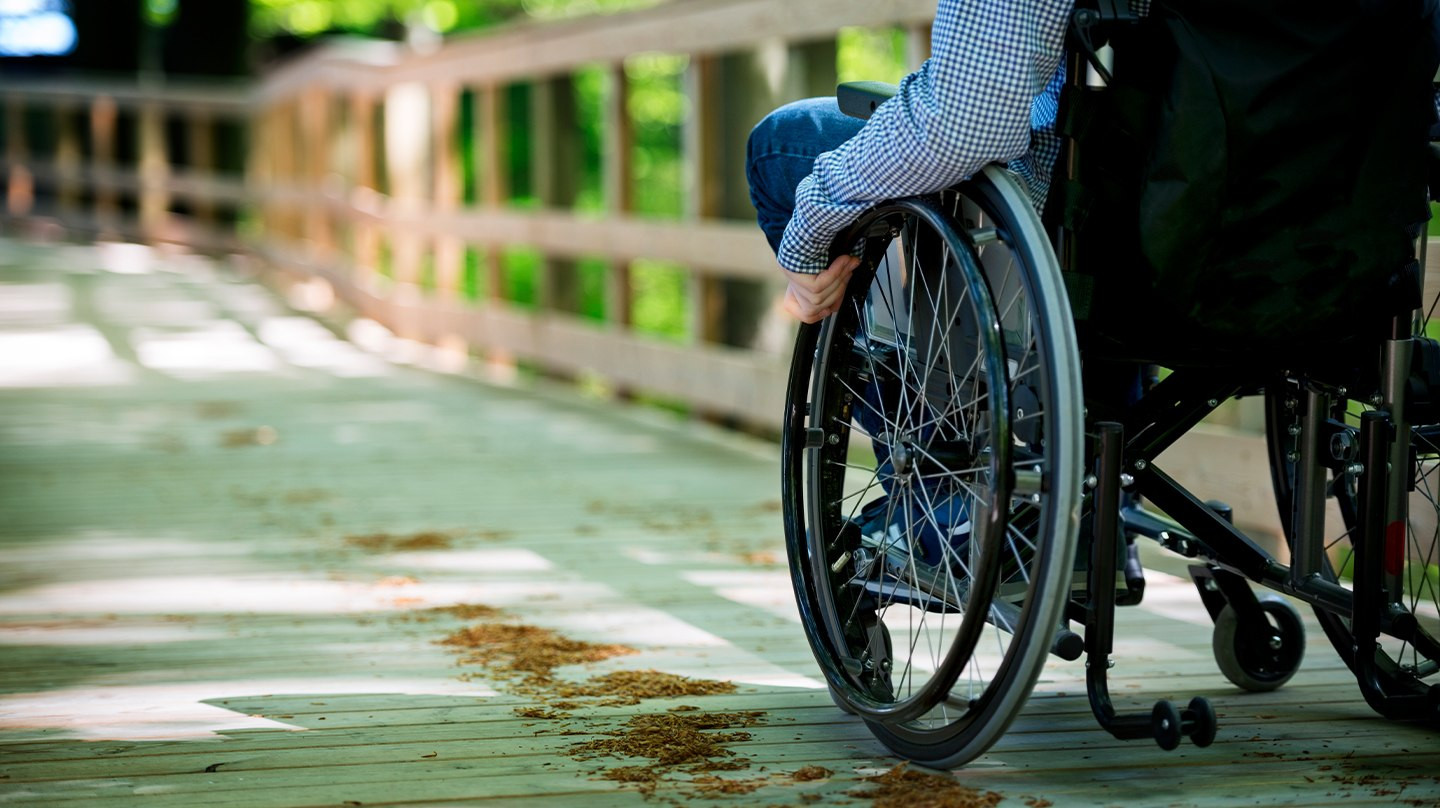South Carolina Paralysis Injury Attorney
Schedule a Consultation
Experienced in Achieving Successful Results
Paralysis can have devastating and permanent effects on an individual’s life. The injured person is likely to need extensive, long-term medical treatment as well as everyday living assistance. When paralysis is the outcome of a major incident, not only does the victim suffer from the physical implications, but there are also many invisible effects of the accident, including post-traumatic stress and mental health repercussions suffered from the loss of independency.
In some cases, a paralysis injury may be caused by someone else’s negligence. If this is the case, we can fight on your behalf to recover the compensation that you and your family deserve. We understand that financial reward doesn’t replace or fully compensate for physical and emotional torment, but it will at least remove some of the financial burdens whilst helping you rebuild your life to as normal as possible.
Our personal injury lawyers are experienced in achieving successful results, even in the most complex of lawsuits.
Types of Paralysis
Paraplegia and quadriplegia are two types of paralysis and are typically caused by a spinal cord injury or a head/brain injury.
Paraplegia: Paralysis of the lower half of the body, including the legs. Extreme forms of paraplegia leave the injured person unable to walk or move his or her legs at all.
Quadriplegia: Paralysis of the body generally from the shoulders down. All four limbs and the torso are completely or partially paralyzed.
Monoplegia: Paralysis limited to a single area of the body. Typically affecting one limb, movement and sensation are mostly unaffected in other areas of the body.
Hemiplegia: Similar to monoplegia; hemiplegia usually affects limbs on one side of the body. However, it can be progressive in nature.
Usually, the location of the injury determines the degree of paralysis. Because the paralysis occurs below the location of the injury, the higher the injury on the spinal cord, the more impact it has.
Accidents That Can Cause Paralysis
Paralysis is a catastrophic injury caused by major trauma to your body. While it can be caused by a health condition, such as a stroke, in some cases, someone else’s negligence can be to blame. These are the most common examples of accidents caused by negligence:
- Auto Accidents
- Bicycle accidents
- Pedestrian collisions
- Accidents in the workplace
- Sporting injuries
- Medical malpractice
Filing a lawsuit for paralysis in South Carolina
Once you file your case, you will become a Plaintiff and the at fault party becomes a Defendant. At this point, we will start to gather facts through exchange of documents, written questions or depositions. This is called the discovery phase and can include:
Medical examinations: Your chosen doctor can perform an initial medical examination. Sometimes, the defendant or their insurance company requests a second opinion.
Gathering documentation: Documentation can significantly help with your case, allowing us to prove to the court and/or insurance company that you within your legal rights to file a claim. Documentation and physical proof may include medical records, radiology imaging studies, photos and video of your impairment and limitations, bills, copies of your insurance policy, plus any other appropriate papers and proof.
Depositions: This is witness testimony given outside of court but under oath, and can be an important aspect of the discovery process.
Interrogatories: Interrogatories are written questions that we will issue. These questions are to be answered in writing and under oath by the receiving them.
Expert witnesses: Sometimes, we may need to use an expert witness or witnesses. An expert witness is a highly trained and credible professional who will provide a testimony based on their expertise. Expert witnesses are used to explain complex topics to judges and juries, and to establish that the Defendant violated a standard of practice or care. To prove fault for your injury, the type of expert needed will depend on the nature of the case and what happened. The same is true for the injury and damages experts. Usually, the types of expert witnesses that may be involved in a paralysis case are those who work in the appropriates fields regarding the legal responsibility issues, as well as the appropriate doctors like neurologists and neuroradiologists, just to name a couple.
What happens after the discovery phase?
By the time the discovery phase is concluded, both parties should have a full view of the case, along with knowledge of what evidence is to be presented at trial. Both parties will re-evaluate their positions and often cases can settle before they go to trial. However, if the parties are unable to agree, the case will go to trial.
The types of damages and compensation awarded for paralysis:
- Medical bill payments
- Rehabilitation expenses
- Pain and suffering
- Loss of wages
- Physical impairment and disfigurement damages
- Home modifications
- Any other costs that arose due to the paralysis
Contact a Charleston Paralysis Attorney
The attorneys at Clore Law Group, LLC have successfully handled cases resulting in paralysis, resulting in settlement or significant jury verdicts.
If you’ve been a victim of serious injury as a result of someone else’s negligence, please get in touch with us at Clore Law Group, LLC. You can contact us at 1-800-610-2546 or 1-843-258-8967, or you can email us at [email protected].
Since initial consultations are always free, there’s no cost in learning your legal options.

